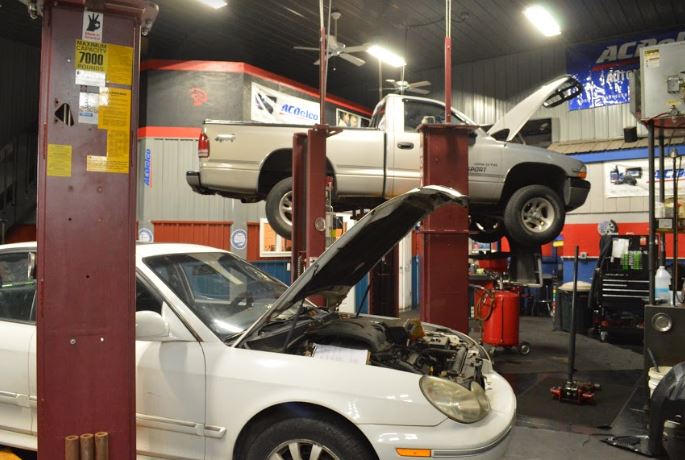All Categories
Featured
While it's very easy to take your cars and truck battery for provided, recognizing just how to examine its health can aid stop inconvenient failures. Normal checks can expand the life of your battery and guarantee your car runs efficiently.
Why Battery Health And Wellness Matters. Your cars and truck's battery plays a critical function in starting the engine and powering digital systems like lights, cooling, and the radio. A stopping working battery can create slow beginnings, malfunctioning electronic devices, and even leave you stranded. Batteries normally break gradually, but knowing when they're on the edge of failing can conserve you from these situations.
Indicators That Your Battery May Be Weak. Before you dive into inspecting the battery yourself, it works to be knowledgeable about some usual indication that indicate your battery could require focus:

Slow Engine Crank: If your engine takes longer to start, it may be an indication that the battery is losing its power. Dim or Flickering Lights: When the cars and truck is running, check the headlights. If they appear dim or flicker while you're idling, your battery might be struggling. Inspect Engine Light or Battery Warning Light: Several modern vehicles will present a battery caution light on the control panel if there's a problem with the battery or billing system. Corrosion: Noticeable deterioration around the battery terminals is a clear indicator of an issue. This build-up can conflict with the electric link, leading to poor performance. Constant Jump Starts: If you frequently need to jump-start your auto, your battery is most likely near the end of its life and must be replaced. How to Check Your Automobile's Battery Health. Evaluate the Battery for Physical Damage:. Begin by looking over the battery for splits, leakages, or protruding. Physical damages to the battery instance can suggest that the battery goes to risk of failing. If you observe any type of leakages or rust, take caution, as this can be unsafe.
Inspect the Voltage with a Multimeter:. A simple and accurate way to check your battery health and wellness is by gauging its voltage. Here's how you can do it:

Set your multimeter to DC voltage and select a 20-volt range. With the car off, position the red (positive) probe on the positive terminal and the black (unfavorable) probe on the unfavorable terminal of the battery. A healthy and balanced battery needs to read around 12.6 volts or even more. If the voltage is below 12.4 volts, the battery might be weak and need charging or replacement. If it's under 12 volts, it's time to believe about obtaining a brand-new battery. Execute a Tons Examination:. To actually analyze how well your battery carries out under anxiety, a load test is perfect. This test is best done by an expert technician, yet you can carry out a fundamental lots test if you have a battery lots tester. Here's an easy way to do it:
Shut off the car, and determine the voltage making use of a multimeter as explained over. Beginning the automobile and gauge the voltage again. If the voltage goes down dramatically below 12.4 volts when the engine is running, the battery is battling to preserve fee and might need substitute. Inspect the Alternator Output:. A damaged alternator can also trigger battery issues, as it's liable for reenergizing the battery while the auto is running. If the analysis is listed below this range, the alternator might not be appropriately charging the battery, which could lead to battery failure over time.
What to Do If Your Battery Is Weak. If your examinations reveal that your battery's voltage is low or it's not holding a charge, there are a couple of things you can do:
Fee the Battery: If the voltage is slightly reduced (12-12.4 volts), attempt charging the battery with a car battery charger. If it holds a cost, it could be able to last a bit much longer. Change the Battery: If the battery's voltage is under 12 volts or it has a hard time to hold a fee, it's likely time for a substitute. Most cars and truck batteries last 3-5 years, so if your battery is nearing that age, it's worth changing it before it passes away completely. When to Change Your Car's Battery. While batteries can last for a number of years, it is necessary to change them prior to they stop working totally. Below are some variables that might indicate it's time for a replacement:
Age: If your battery is more than 3-5 years old, it's an excellent concept to change it, even if it hasn't shown indicators of failing. Regular Problems Beginning the Car: If your cars and truck has trouble starting even after being jump-started, it's time to get a brand-new battery. Corrosion or Leaks: If deterioration or dripping shows up on the battery, it may be a sign that it's getting to completion of its life. Final Thought: Routine Battery Maintenance for Long Life. Checking your vehicle's battery health is a straightforward yet crucial part of vehicle upkeep. On a regular basis inspecting your battery will make sure that your car runs smoothly and starts reliably every time, and it will help you avoid unforeseen failures.
Latest Posts
Plan Your Perfect Room Without the Headache
Highlighting Longevity and Assurance
Introducing the Professionals Behind Montclare Auto Repair - Dedicated to Quality
